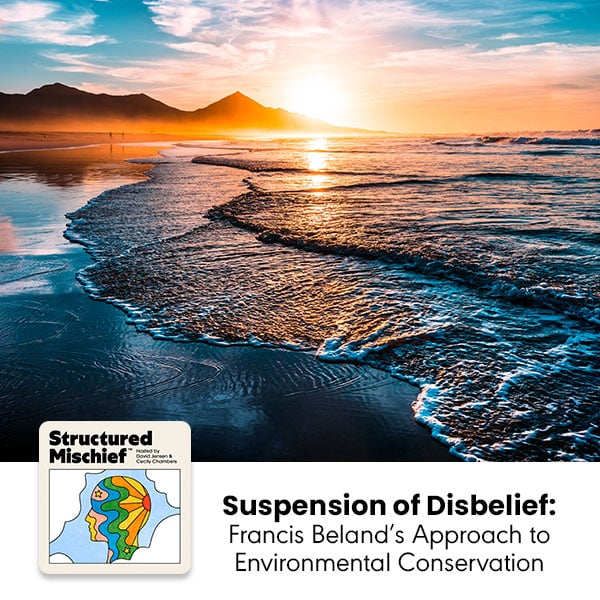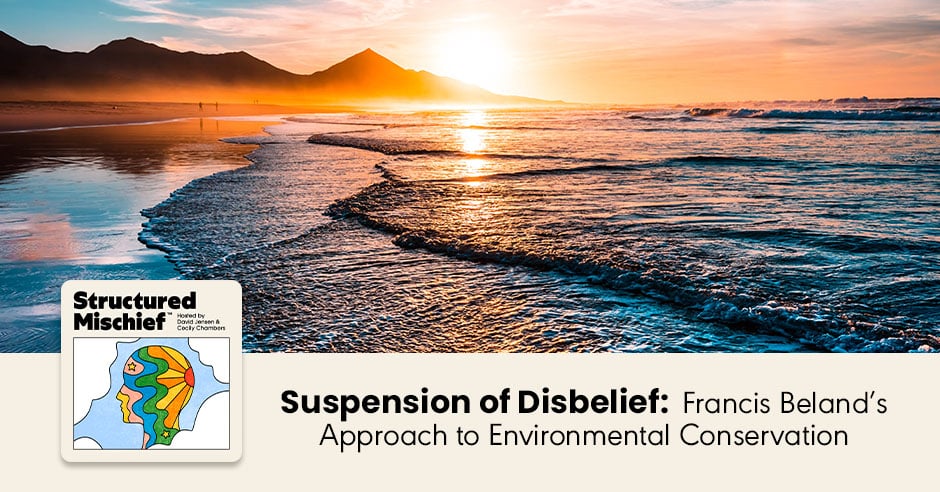
How can we create a viable impact against global warming? How must we change our way of thinking to save the planet? David Jensen and Cecily Chambers dive into this topic with Innovator Francis Beland. Francis Beland is currently a Senior Partner with the Oxford Gav Conservation Venture Studio. Oxgav is a collaboration between the University of Oxford and the Global Accelerated Ventures. Their goal is to prevent future disease transmissions, enable economies to adjust to climate change, and preserve a shared global heritage. Tune in to hear Francis Beland’s thoughts on disrupting the status quo and listening to your gut.
—
Listen to the podcast here:
Suspension Of Disbelief: Francis Beland’s Approach To Environmental Conservation
We are thrilled to welcome innovator and venture capitalist Francis Beland. From a very young age, Francis knew he had a passion for the ocean. This passion pushed Francis to become a trained oceanographer at the start of his career. Francis slowly transitioned into the business world. After years of consulting and leading open innovation projects, he was able to go back to his roots and combine his passion for the ocean with venture capital. Join us to learn about Francis Beland’s newest venture with the Oxford GAV Conservation venture studio and the many ways that you can make an impact against climate change.
—
We’ve got Francis Beland with us on the show. Welcome, Francis.
Thank you, David. Great to be with you.
We’re so excited to have you on. Given all the amazing projects and work you’ve done in the innovation space, you’re training as an architect, oceanographer, innovator, a venture capitalist, and the list goes on. It’s so impressive. We wanted to start about what inspires you when you are building out a new project? When you’re creating or imagine a new project, where does your inspiration come from?
There are two areas. The first one is this need to disrupt. Since I was a kid, I always had this need to disrupt the status quo. I started my career in the husbandry world, zoos and aquariums. We had a huge need to disrupt the way animals were kept in captivity and the way people were educated. It has been following me ever since. The second one, in the creative world, we create what I call a suspension of disbelief. We try to create a world in innovation where people can look at the future value of creation. Look at the future in the most positive way. Once you combine that with disruption, you have some pretty amazing things happen.
I didn’t know that you were helping breed animals back in the day. How did you get into that? Was that out of your oceanography training outside of being an architect or was that parallel?
I paid myself through college by being a dolphin trainer. I went into the husbandry of Marine species. That was a side gig for me. It became amazing. Early in my career, we were in the middle of a recession and there were very few individuals that were an architect and had Marine Biology backgrounds. I fell into designing aquariums straight up to college. It was an amazing ten years of my life.
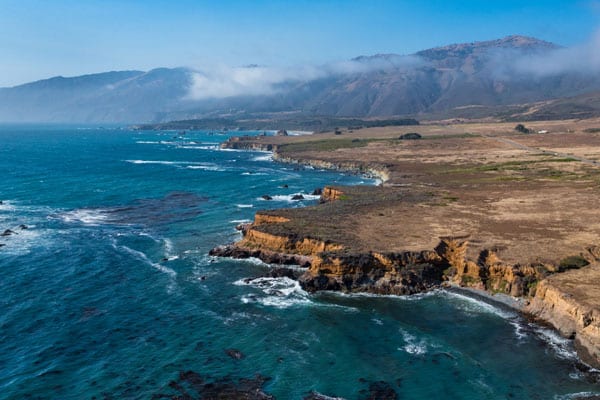
Global Warming: Despite all the amazing environmental studies in the past years, the Earth still lost 60% of its biodiversity.
Your passion for architecture and design married with your passion for ocean life and that continued through your whole career. I don’t want to jump ahead but I want to make the connection for our readers early on about the work you’re doing with Oxford GAV. Can you talk a bit of the venture studio model and how you’re creating unique businesses to help everything from save the oceans and reverse climate change and doing sustainability work?
If I take everybody back 50 years, in the 1970s, we established what conservation biology was. That’s when this discipline started. In the last 50 years, we’ve published millions of papers on conservation biology. Throughout this time, we have all these amazing studies but we’ve lost 60% of the biodiversity on Earth. It’s completely turned upside down. The more we study, the more we think we know conservation biology, the more we lose species, and the less diversity we have.
When you look at that, there’s something broken. The way academia and experts are looking at problems, they’re not developing solutions. When we created GAV, Global Accelerated Venture, we decided to change that trend and go straight into academia, and build a venture studio within a large IP generator and large universities. The science that has been developed there to exploit in the way to create a solution.
Re-engineer biodiversity, harness investment, and get some tech transfer from those universities to help save the planet. We’re hoping to change the trend from having all these very smart people doing all these studies and still losing biodiversity to using all these studies to effect change. That’s how GAV was started. We have a studio at University of Oxford. We have one starting at Stanford.
We have one that will start on the first of 2022 at Harvard. We just signed Texas CNM. We have the University of Florida. We have the University of Pope in France. Our group universities are increasing every month and the amount of change that we can then affect increases drastically. It’s a way to go in to become an IP aggregator for all the great science being generated in those universities but applying them to save our planet.
I was interested in how you increase biodiversity.
There are many ways we can do that but one of the most important ways is to recreate and allow the ecosystem to regenerate by itself. For example, when we go into Borneo and we do a single plantation of Palm trees for Palm oil, we are killing the biodiversity in that area. What we’re doing at GAV is we are acquiring and purchasing thousands of acres of land around the world, Brazil and Indonesia. We are allowing those acreages to regenerate themselves. By doing so, hopefully, we will increase the biodiversity on those pieces of land and generate some different types of economic potential for those areas.
This first part of our conversation is getting better acquainted with you. That’s helpful with connecting your roots to what you’re passionate about. In what you’re doing with GAV, specifically the venture studio, is there a specific area that you are committed to in terms of being involved?
There has to be a suspension of disbelief today and imagine the beautiful life that everyone can create on earth. Share on XYou know me very well, David. I’ve had this passion for the ocean since I was six years old. Bringing GAV into ocean conservation for me is key. There was so much for us to do. The ocean has been our biggest ally so far. The effect of climate change has been mitigated by the oceans since the industrial world. The ocean has huge potential to capture CO2, for example. That has allowed us to mitigate some of the major changes but it’s stopping. Now we are overusing it.
We’re getting to a point where the ocean cannot help us. We need to help it. From fisheries to ocean acidification, to coral reef repopulation, reversing coral reef bleaching, all those areas for me are a tremendous amount of work that needs to be done. It is also a key to our survival on this planet. I don’t think there’s any other thing but the ocean, which is at the forefront of what I’d like to GAV get involved in.
That’s so interesting and exciting because I know the other side of the equation is regenerative ag. The combination of the oceans in regenerative ag. I won’t call myself a novice but I have enough information to be dangerous. I’ll be careful here. What I’m reading and learning about is that those two of our planet are the things that can reverse climate change. Renewables are good but they keep the status quo.
Given carbon continues to increase climate change, they help create neutrality and balance that on some level but it’s the oceans and regenerative ag. Is there a connection there? We have aquafarming that’s unfolding. Does that help when you grow seaweed and feed cows, which greatly reduces their methane output? Is there a connection to regenerative ag and the oceans, and fixing the oceans that can help reverse climate change from your perspective?
There are a lot of links, not just regenerative ag but general agriculture and the ocean. There’s so much pollution coming into the ocean from agriculture. To runoff, fertilizers and creating huge algae bloom in coastal zones without any oxygen, which then depletes the fish stock. There’s huge connectivity between both. Regen agriculture would be supported by changes in the way we manage our oceans. You’re extremely right. The use of the Kelp analogy for feeding cows is a good example.
Algae is a huge way to capture CO2, just as trees on Earth. If we’re able to manage our coastal areas much better, the amount of carbon sink that we can generate in both coastal areas would be tremendous, then we would have a huge effect. All of the marshes and wetlands that we are destroying are huge carbon sinks. We’re destroying the forest. We’re at a point where we can use green energy and things of that nature that limits the amount of CO2 but we have to decrease the amount of CO2. To decrease, we have to be very proactive.
That’s where I was going with the whole regenerative ag and oceans species. That’s truly those two elements that can reverse climate change, where renewables, green, be it wind-solar, etc. They keep a status quo of where the damage has been done. They help in making it not worse but it’s not reversing. I also wanted to go back to one point and I noticed that Cecily wants to jump back in here. When you talked about the 50 years of conservation and how it’s gone off the rails a bit.
Can you point to a bit more specifically dive into how that happened? You talked about the disconnect between the academy and science, and then implementation in the field. I looked at agencies in the US, the National Fish and Wildlife Foundation, which was the recipient of the damage done in the BP oil spill several years ago in the Gulf. I look at the World Wildlife Foundation Federation, and there are all these great organizations, and I’m not calling them do-gooders because they do good work but have they become part of the problem?
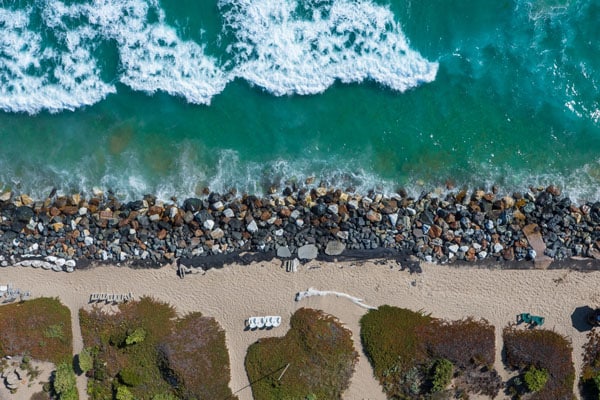
Global Warming: Using renewable energy is acceptable, but everyone must be proactive in decreasing the amount of CO2.
They’re maintaining a status quo. A lot of these organizations have amazing people working for them but they cannot effect change. We, as a society, are driven by financial returns. All the work that WWF, Conservation International, all these agencies are trying to do good work but they’re budding heads with for-profit in a business environment. That’s one of the reasons they haven’t been able to effect change as much as they should. We need to align that.
We need to develop some ways where those organizations can affect business processes in a positive way. We have to create different types of financial incentives for us to do the right thing. More than that, what I believe is the academic world has led us down. Universities around the world, we have amazing smart people studying everything on Earth from Microbiologists, Geologists, Oceanographers, Conservation Biologists, Ichnology and more.
There are incentivized to get grants, to publish more. We rarely incentivize people within the academic world to go out and take their invention, technology or IP into the marketplace to effect change. In both areas, the non-for-profit that are there to support a better environment, and the academic sector are incentivized not to bring or effect change and incentivize within their own industry. That’s the problem. We have to change those incentives and we have to get those smart people to do real work.
Implementing what they’ve come up with into the real world. I wanted to know about the transition from being an oceanographer into venture capital. How did that look for you? How do you come up with this idea of transformation capital? Did you find other people that felt that same way? Can you talk a bit about that transition?
It was a very slow transition. I spent part of my career leading what we call open innovation. I lead open innovation projects around the world, from sending Burt Rutan into space with the X Prize, to running different types of open innovation projects for the United Nations, for European Commission, and for The White House. I transitioned into consultancy and becoming a Consultant. I better understood the business world and what needs to be done to be successful.
One day, I decided to go on my own. I looked back into my career. I still have this huge passion for the ocean. I have a bit more business savvy than I did when I was twenty and I said to myself, “Why not combine it?” As you just mentioned, bring this idea of transformational capital into the venture world. Where we can develop disruptive assets within industries and those disruptive assets, then become valuable, become IP.
You could spin them off or do follow-up investments. It was a slow transition. It’s one that I would not have been ready for earlier in my career. After spending 25 years in the business world, I was very lucky to be able to bring back my passion for the ocean with my experience in the business and the business sector.
We want to know a bit about you growing up. As a kid were you mischievous, studious or creative?
Even though there is work being done towards environmental conservation, they are clashing head-on with for-profit organizations. Share on XI was one of the con of the class.
A little troublemaker.
I spend more time outside the Principal’s Office than in class. I was a dreamer I could not even think of spending the entire day in class. I would always find ways to get out of the class. One thing is for sure, since the age of six, I had this little Cousteau hat. Do you remember the little orange bonnet or Zissou made very famous in the movie? Cousteau had done it 30 years before. Since I was at six years old, I knew that’s what I wanted to do. I’ve always been pretty driven. I was mischievous. I enjoyed going to school, probably at the end of high school. When I got into college, I started appreciating education a bit more. Before that, I was trying to do everything not to be in class.
In this show, we are looking at how people affect change in the world, how they’re creating change in the world and their roots. Part of our exploration is looking at how you create a minimum viable collective for change. Borrowing from the startup world is a minimum viable product. That minimum viable collective in our mind has different persona types, hustler, hacker, hipster and heretic. We’re wondering, given your background and your roots, does one of those terms resonate with you? Are you one of those?
I’m certainly not a hustler. Unfortunately, I don’t have a hustling bone in my body. The heretic is probably the closest to my personality of the three that you mentioned.
As a heretic, that means you’re always looking and questioning the viability of something, the intention behind that is to create the best good out of it. Can you talk a bit of you as a heretic in your ventures?
We have a venture in the studio, which is in the hydrogen world. It’s a venture that we’ve been working on for many years. As a heretic, the venture did not start as a hydrogen venture. It started as a way to capture CO2 from flaring and off-gassing from oil and gas production. Honestly, I could not believe that such a great idea we had and great IP would be used by oil and gas. For many years, I self-destroyed the idea because I didn’t want to deal with the oil and gas industry.
It’s simple as that. We could have been hugely successful so far. It’s in your gut and you say, “My gut is 99% of the time right. This doesn’t feel right.” We worked on it but every time we got a buyer, I would step out and find every reason why this was the wrong buyer and the wrong partner. Now, I know why because this technology that we have developed is going to be one of the most essential technologies to transition into the hydrogen industry in our economy.
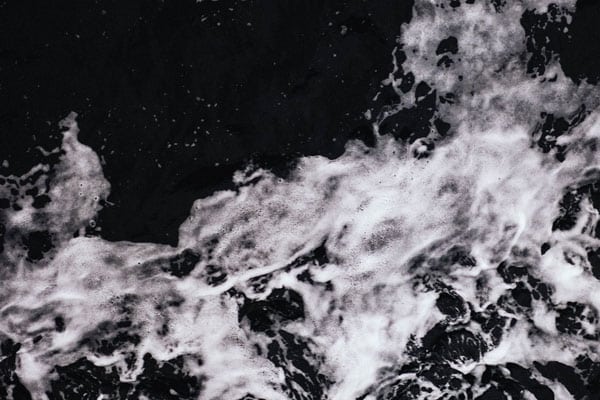
Global Warming: Non-profit organizations and academic sectors are both incentivized to create change in their own industries. That must be changed so they can contribute to the real work for the environment.
It took us several years. I understand why I wasn’t a heretic because I did not believe that maybe as you mentioned, I had the right group of people to take all the potential of this technology. That’s an example. It’s a live example because we are pushing it strongly and it’s getting amazing attraction in Europe and America. It will be one of our first successes.
That is so relevant to what we’re doing on this show and, in general, research for the book that accompanies this. There’s alchemy and science. There’s a combination that goes into making a change in the world. We’ve heard from others that have been in your seat about how, either a gut, instinct or an impulse prevented them from either doing something or accelerating something. It’s about knowing that you have and you’re putting all these bits together. I love that example of you not wanting to have it be exploited in the oil and gas world.
Ultimately, you knew in your heart or in your gut that it had potential and a larger good that it could communicate. That’s also what’s interesting in what you’ve been describing in the GAV organization and connecting all of this research. Research scientists and IP is being able to filter that and then look through that heretic side, I’m sure there’s going to be a hustler and hipster on your team who’s going to market it the hell out of it and all of that about how you come together in order that collective good to make a change. Does that resonate?
A hundred percent. We have an amazing team. You put your finger on it, we have hustlers and hipsters on our team. We have people that have been in the venture world for 25 years. We have people who have never been in the venture world but they’ve been in other parts of the business world where their passion is from their environment. They joined us and became what I call free radicals.
I love to have a free radical in my team because they think differently. It’s because they come from such different diverse backgrounds, we get some amazing ideas. We get some great projects. We get so much excitement. I’m with you about the three personality types. I like to sprinkle in some free radicals in there because they shake things up in ways that you can never predict the outcome.
They have the X factor.
We’re also conscious of your time and our readers’ time. We wanted to move to a closing part, which is around taking action. In this interview with you, in particular, we also want to help people think about how they can apply this in their personal lives and also how they can get involved. Thoughts on that, either with the GAV or more broadly those organizations that have been doing good to help with conservation but maybe need to be challenged in new or different ways or new organizations need to be created.
We’ve got the UN Glasgow, SDG, Sustainable Development Goals forum coming up. The first week of November 2021. I’m assuming you are going to be there in some capacity. Does it mean people that go to events like that find a cause or an opportunity to get involved? We’d love to hear your thoughts on how do we make a change both personally and then more broadly from a corporate perspective.
Businesses are out there to make money. There must be a massive shift for them to deliver well-being towards a better future. Share on XI’m not sure you’re going to like my answer but I’m still going to stick by it. The first part of my answer is, GAV’s going to be at COP26. Hopefully, we’ll announce some great new partnerships but it is a big moment in time. I was meeting with a series of business leaders and bankers. I told them that COP26 conferences would overtake Davos in a very short amount of time. There was a lot of skepticism.
Were you booed off the stage?
Pretty close. I still believe so. That’s where we’re going and we have to dream about it because if we don’t believe it, it will never happen. To answer your question a bit more precisely, I like to go back to a concept called suspension of disbelief. I always use that concept throughout my career and it’s something that was brought to me when I was Executive Producer for Cirque du Soleil because that’s what we created.
In those years, suspension of disbelief where somebody would go see a show, forget their daily problems and daily lives. For that 90 minutes, lived another life and in a different world. It is the same approach we need to have to get involved in conservation movements. We have to create a suspension of disbelief of our life now and imagine the beautiful life that we can create on Earth in the future. Once you’re able to do that, once they are able to see yourself in that future, where the grass is greener, there’s more biodiversity, the effect of climate change is starting to negate itself.
You’re leaving a better planet for your kids and your grandkids. Imagine it, and then you can believe in it and get involved in any way, shape or form. You don’t have to join a larger organization. You can join some local neighborhood organizations to help clean your neighborhood, clean the ocean, doing a clean-up on the shore.
There’s one happening because there was a huge mascot that blew a lot of garbage into the ocean. There’s a huge clean-up effort. You can put, “Invest in the conservation movement. You can invest in greener technology. You can the way your house operates. You can get a car that’s more energy-efficient, a no-fossil fuel car.”
There are so many ways. There’s no good or bad way. Spend a few seconds, create this area of suspension of disbelief in your mind. Believe in a better future and that will tell you exactly what you need to do as an individual and what you can do as a family to support that vision. I know it may not be the most business-like answer but at the end of the day, business is just a way to bring wealth and well-being into our community. If we see a business that way, then this idea of suspension of disbelief is key for us to reach that better future.
What you’re also describing from my perspective is good old grassroots activism. It’s a combination because what’s also great is that this is on the CEO’s agenda globally, either through their ESG programs or their SDG compliance if they’re part of Paris or whatever it is. This is a combination of Sustaining Development Goals and quality social and governance.
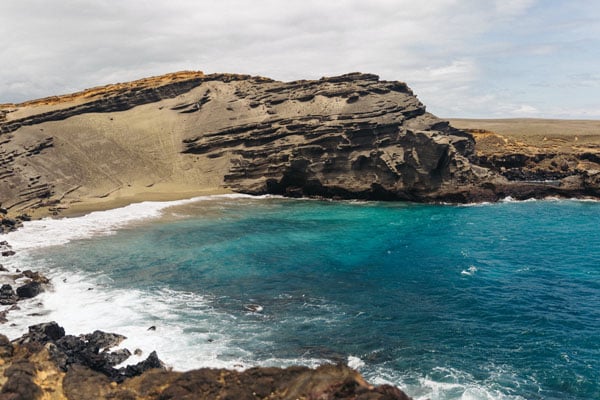
Those are coming together in an interesting moment where companies are being held accountable for reducing their carbon footprint or helping to save the planet. There’s a strong connection between grassroots organizations of folks that are cleaning up the shoreline in Monaco and what they expect corporate leaders to do in cleaning up the messes they’ve created.
When you look at ten years from now, there’s a new state of future value creation. The societal values we will have ten years from now are different than now. As businesses, we have to predict what the future value state is and maximize our corporate position so that we can reach that state. If future value creation is based on societal values, societal values are intrinsically associated with grassroots with what people do, what people believe in. That’s why whatever you believe in will have a huge effect on the way the business will change because we are affecting the future values of our society. Grassroots, large corporations, business decisions, all of that are what we need to have that future state.
There’s a client who I won’t say by name but is looking and doing deep research in what they call ESG elasticity. How can you make a connection between somebody’s behavior, specifically a consumer’s behavior in reaction to a view that a CEO or corporate world puts out about how they are trying to be ESG friendly, and then ranking them and holding them accountable?
That’s an interesting concept that they’re exploring. I can’t wait to see their research on it. It speaks to the point you’re making about the connection between grassroots and, ultimately the corporate life. We’re going to be closing here. I’m going to leave it to Cecily to ask our final question to you.
If your current self could look back and give your younger self one piece of advice, what would it be? If your future self, ten years from now, could look back to your current self and give your current self one piece of advice, what would that be?
I would probably say stop thinking because early in my career, I would think about every decision and move I make so much that I would overthink it and sometimes lose the moment. The moment is so important because, either in your personal life or business life, everything has a timeframe. We think too much, we lose it. What my future self would say, probably sounds corny. I’m sorry. Something like seizing the day.
I get lost in future thoughts. I get lost in the suspension of disbelief and this imagining a better world. I spent most of my days in that framework in my mind. My future self would say, “Stop it for a bit and enjoy today. Go have a drink and enjoy friends and the environment you’re in.” It’s because I’m missing some of my time.
That’s interesting because what I’m hearing from you is that if you were to give your younger self one piece of advice, it would be to not be so granular, in the details, and worrying about overthinking it but have a wider perspective. Your future self is now giving your current self the advice of not having this wider view and always thinking that way but being more in the moment. There’s probably some balance between both sides that is the right place for you.
I’m sure there are some psychologists out there that can figure me out.
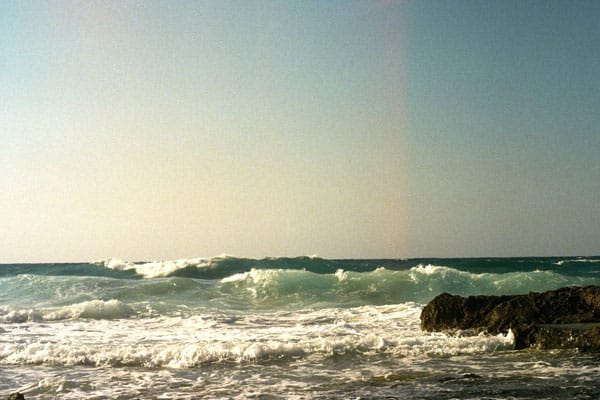
On that note, that will be a continued conversation for our next episode with Francis Beland. Francis, thank you so much for taking the time. This was a fantastic conversation. We look forward to learning more and seeing the results of the GAV organization and what Oxford, Harvard, Stanford, and others are going to be putting out in the world.
Thank you, David and Cecily. Thank you for an amazing time. Watch for us at COP26. We’ll have some great announcements.
Thank you.
Thanks, Francis.
Important Links:
About Francis Beland
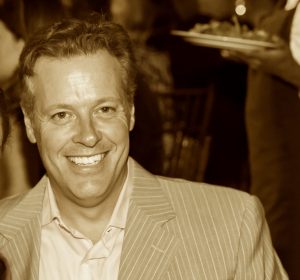 As CEO of Predator Capital Partners, Francis leads investments in transformational technologies. He helps companies identify breakthroughs and elevate superlative behaviors, ideas, products and achievements in order to motivate, guide, and inspire. He shapes the agendas and behavior of organizations and guides (directly or indirectly) the activity of R&D departments, corporations, and corporate venturing. Finally, Francis provides valuable leverage for corporate investments by mobilizing further financial or intellectual capital in support of growth and venture solutions. Prior to starting Predator Capital Partners, Francis was a Partner of Deloitte Monitor and a member of the leadership team of Doblin Innovation.
As CEO of Predator Capital Partners, Francis leads investments in transformational technologies. He helps companies identify breakthroughs and elevate superlative behaviors, ideas, products and achievements in order to motivate, guide, and inspire. He shapes the agendas and behavior of organizations and guides (directly or indirectly) the activity of R&D departments, corporations, and corporate venturing. Finally, Francis provides valuable leverage for corporate investments by mobilizing further financial or intellectual capital in support of growth and venture solutions. Prior to starting Predator Capital Partners, Francis was a Partner of Deloitte Monitor and a member of the leadership team of Doblin Innovation.
In this role Francis lead Monitor’s Open Innovation practice by assisting companies in identifying and developing a systematic approach to engaging and directing external resources in finding solutions to specific business opportunities and challenges while diversifying their innovation portfolio. Francis has extensive experience developing large-scale innovation programs in healthcare, automotive, biotech, medical devices, governments, oil & gas and energy industries. He is an innovation advisor to Facebook, the United Nations, the European Commission, and an Entrepreneur-in-Residence at the White House for the Food and Drug Administration. He recently facilitated a discussion at the White House to develop new innovation pathways in the medical technology sector.

